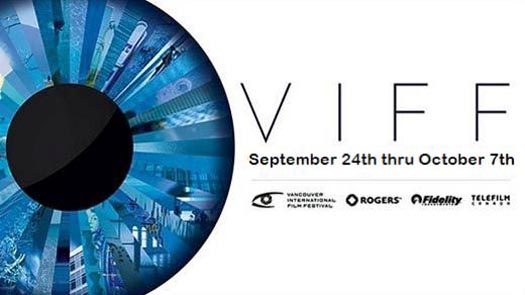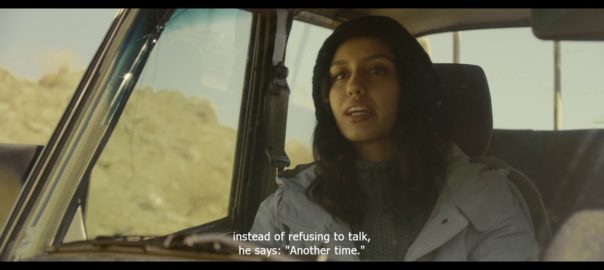
In the midst of our globe’s current COVID-19 pandemic, VanRamblings has chosen to present “previews” only of films that will be offered for screening online, and leave the In Cinema films on offer at the 39th annual Vancouver International Film Festival to other “critics”, all in the interest of keeping you safe from any harm, and any potential exigency of COVID-19.
Today, for your edification and enjoyment, four more well-curated VIFF 2020 films for you to consider, even as you traverse the rocky shoals of the upcoming 42nd British Columbia provincial election.
There Is No Evil (Germany/Czech Republic/Iran). Winner of this year’s top prize, the Golden Bear, at the Berlinale, Iranian filmmaker Mohammad Rasoulof could not attend the ceremony in Berlin, due to an Iran-sanctioned travel ban and possible prison sentence for his politically charged film.
Long banned from filmmaking in Iran but still active, screenwriter and director Rasoulof returns to the great moral themes that underlie all his work, as he orchestrates a cautionary tale comprised of four discrete chapters, creating a powerful moral case against Iran’s death penalty, tracking four military men tasked with executions, where to resist Iran’s authoritarian regime brings dire consequences, each compassionate story a standalone short film exploring a different facet of the subject.
Slow burning, at times enigmatic, one quasi-escapist tangent morphs into a sentimental romantic drama. But even so, overall Evil offers troubling film fare, sometimes didactic but always tension-filled and enthralling, the underlying moral conundrum of the film percolating through each chapter of There Is No Evil, set to emerge as one of VIFF 2020’s must-see films.
Citizen Penn (USA | Documentary). On January 12th, 2010, a devastating 7.0 earthquake struck Haiti, altering the landscape and lives of millions. Aid workers from around the globe descended on the island, along with one unlikely leader — actor and filmmaker Sean Penn. What began as a brief relief attempt turned into a decade of dedicated effort on the part of Penn to not only save lives but to revitalize a community.
Citizen Penn chronicles the moment Penn arrives on the island, and the ten years since, as Penn the humanitarian carts supplies, builds tents, procures medicine, and calls on his Hollywood friends to join with financial support. Acclaimed documentarian Don Hardy (Pick of the Litter), with unprecedented access to this once very private figure, offers an intimate look at the challenges faced when one man decides to do something in the face of adversity. — Deborah Rudolph, Programmer, Tribeca Film Festival.
My Wonderful Wanda (Switzerland). Award-winning Swiss director Bettina Oberli’s entry this year to the Tribeca Film Festival, My Wonderful Wanda offers a story about an underpaid personal nurse from Poland, Wanda (Agnieszka Grochowska), who works for low wages for a well-to-do-family, who live in a spectacular Swiss villa alongside a picturesque lake.
Wanda’s job is to care for Josef (André Jung), the patriarch who is recovering from a stroke. As his 70th birthday approaches, in addition to nursing Josef, Wanda takes on some cleaning chores, while deriving yet another source of income from Josef that no one else knows about.
Originally set to début at Cannes this year, although the pandemic changed that plan, My Wonderful Wanda emerges as a caustic satire and comedy of errors, tackling issues of class, family, complacency, reputation, and money — which contrary to the belief of some, does not buy you happiness.
Anchored by Teen Spirit’s Grochowska, Downfall’s Birgit Minichmayr, with a brilliant turn by Marathon Man’s always wonderful Martha Keller, My Wonderful Wanda keeps the twists and turns coming, especially when Wanda’s father Pawel Kowalski (Cezary Pazura) steps into the chaos.
Siberia (Italy/Germany/Mexico). On the one hand, Siberia is a traditional story of an aging, existentially tortured artist who grapples with the decisions he’s made, a character who almost certainly serves as an avatar for the director, played by regular Ferrara leading man Willem Dafoe.
On the other hand, Siberia is an experiment in dream logic, filled with unhinged, almost Lynchian imagery and symbols. Yet, even so, the film is often quite evocative and affecting, Siberia the latest rumination on life from agent provocateur Abel Ferrara. As VIFF programmer Tom Charity writes on VIFF online, “This is pure cinema that takes no prisoners, and the darkest trip that 2020 has offered up — either on-screen or off.”
Visually striking, meticulously composed and a self-mythologizing existential journey, Wendy Ide writes in Screen Daily, “the film looks like the insta feed of a well-traveled psychopath, lacking honesty or meaning. Perhaps the Ferrara name and the extreme response to the picture following its première in Berlin might be enough to secure further festival bookings, and perhaps even sales to VOD platforms based on oddity value.”
Abel Ferrera. You either love him and his oeuvre, or he’s decidedly just not your cup of tea. British film critic Guy Lodge writes in his review in Variety, “There’s certainly feeling and fury in its study of disaffected masculinity left to fester in isolation, as the viewer is pulled along by the film’s strong, seductive, dreamlike current. As we are woken from our reverie when the darkness lifts, as a viewer we are left to wonder, “What just happened?”.
